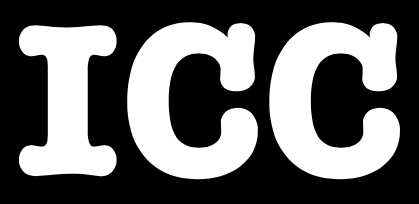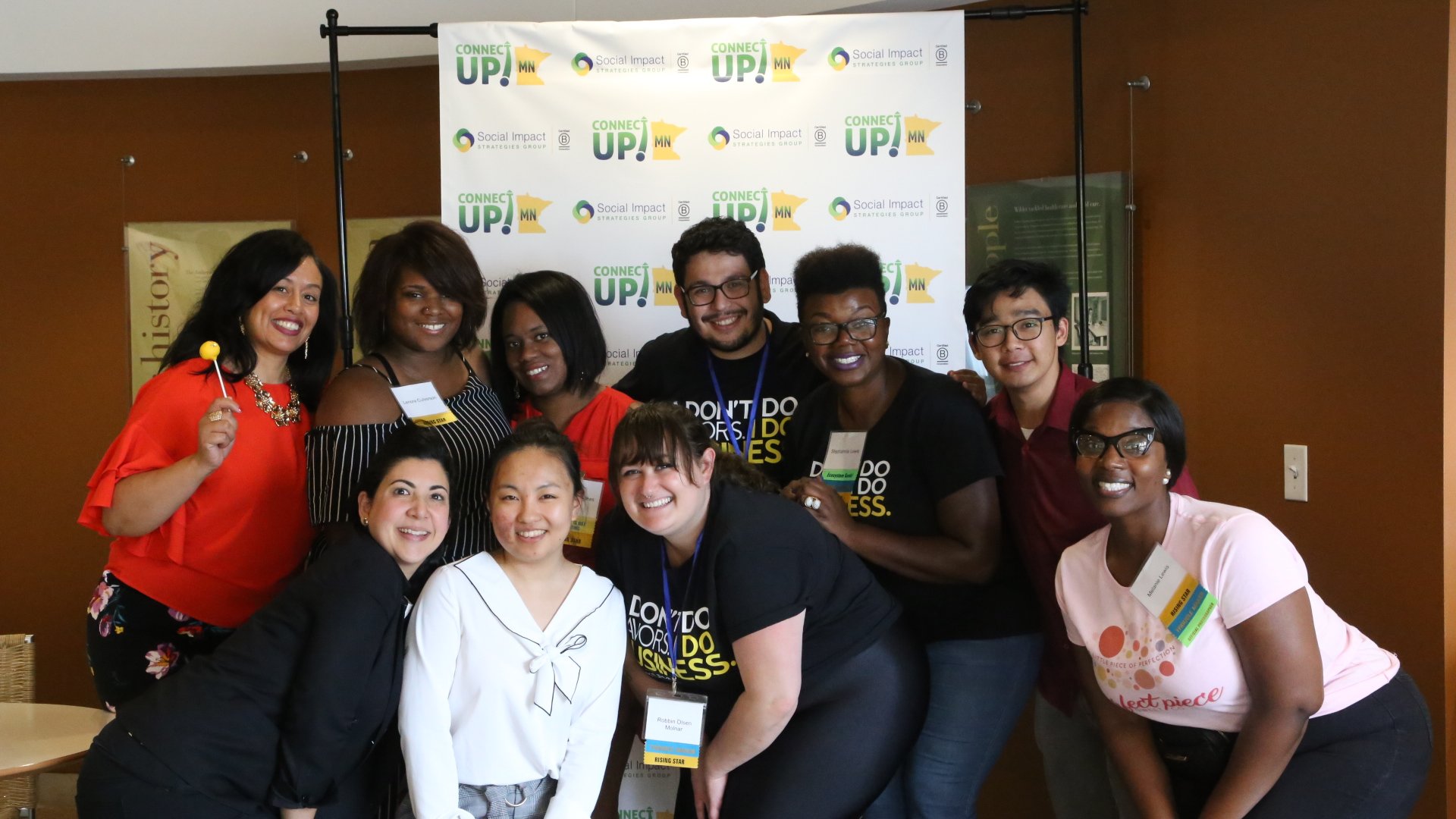Meet Y. Elaine Rasmussen
Y. Elaine Rasmussen is a B-Corp social entrepreneur mainstreaming impact investing and democratizing access to capital by and for Black and Brown womxn. Born and raised in Los Angeles, Rasmussen has lived in St.Paul for the past 16 years. In 2015 Elaine founded Social Impact Strategies Group. To fill a rising need of culturally responsive technical assistance to BIPOC business owners, she launched a sister nonprofit organization called ConnectUP! Institute in 2021. She enjoys serving her community by serving on public and private boards such as Opus Group and Swift Foundation.
"Nothing is really going to change until
we move money differently.
doing the thing that I committed to doing,
and people like the way that I'm doing it,
that's what gets me up in the morning, despite
all of the issues and the challenges.
I don’t do favors, I do business."
-
MISSION
To help Black and Brown folks close the 180 degrees of separation in accessing capital, resources, and networks.
-
VISION
Everyone has shelter from the cold, healthily live to see their grandchildren grow, and their cup is always full of milk.
- African proverb
-
SEEKING
Collaborators and conspirators with a bias towards action (and funding, of course)
Elaine’s Story
While protests are valuable, and they certainly have a role, Elaine believes nothing will really change until we move money differently. This is what she has been put on this earth to do–it is her purpose. This purpose led her to leave her job and create Social Impact Strategies Consulting. Her vast experience in business administration, communication and marketing allows her to speak to different kinds of people in different ways and transmit messages across audiences that historically have been disconnected. With experience as a stock analyst, she understands finance and speaks the language. Too much is invested in these systems and people staying the same, people don’t like to change. She is leading this change by educating both sides of the equation: the investors and the Black and Brown businesses–teaching both about the system that they are trying to break down. She uses her mediation and facilitation skills to bridge these two universes. Social Impact Strategies and their sister organization ConnectUP! Institute help people align their values with their money. Most people miss the mark because they have no connection to the communities they want to impact. Elaine and her team are there to bridge the gap. Her goal is to move $50 billion dollars into black and brown communities.
"We’re breaking away from the path of
traditional and extractive finance
by going even further and creating a bridge
to the new equitable economy."
Q & A
We recently sat down with Y. Elaine Rasmussen to find out more about her passions, her calling, and generally dive in deeper to get to know her.
1
ICC has grown to over 250 practitioners and allies, all deploying a range of debt, equity, and real estate instruments to support BIPOC entrepreneurs and catalyze community wealth.
How did you discover ICC and what drew you to become a partner?
We are a very small community, a collection of people started talking about ICC and it sounded really dope and exciting. We were all coming from different places, even outside of the United States, and really trying to figure out how to change this industry. I’ve been able to watch ICC incubate into this more formal organization grounded in transparency and trust. This community has been a very unique unicorn, like a magical community that comes together. We have a bias toward action, which I don’t think we have enough of, especially here in Minnesota we like to talk a lot. ICC is moving with a purpose. They want to be the change, members have a life purpose that really guides and drives how they show up in the world. Being able to have a touchstone is beneficial spiritually mentally, and then obviously, professionally in doing the work.
2
What are some of the biggest challenges you’ve faced in your work over the last few years?
From a business perspective, the pandemic really hurt my business. We were really fortunate that we had a reputation for our mission work, and were able to keep the doors open, keep people employed. We were pivoting and helped other businesses pivot. But, there was a personal toll it took on me. After two years of just going and going, I had a breakdown and I don’t think I am alone in feeling this way. It was time to restructure, rethink and reimagine the business model of our company. We have this unique moment, a unique opportunity to build the infrastructure and address the structural issues. Minnesota has a 9B surplus. What could it look like if we took those dollaes to put the infrastructure in place that would allow us to thrive as a result of this pandemic, but also survive and mitigate the next pandemic?
3
Developing alternative business models to the startup status quo has become a central moral challenge of our time. These alternatives want to balance profit and purpose and put a premium on sharing power and resources.
Why is getting investments in this alternative model crucial for those who seek it?
Because entrepreneurs need help in the second stage, years 3-10 of the business, as there are a whole different set of problems in that phase. Alternative investment models aren't just about the money, they’re about closing the knowledge gap. Because of this, we have an integrated capital fund that blends capital with fractional executive support and coaching. We would like to be a $50Bfund, and that requires moving $50,000 at a time. That’s like removing sand from the beach with a spoon. Who wants to sign up for that? But it needs to be done, somebody needs to do it otherwise we are not going to have these entrepreneurs move and grow. My job is to be the bridge that can be walked over to get there.
4
How do we shift the narrative about the role of capital in BIPOC communities and reframe the perceptions of the risk involved?
I just keep singing the same record, every space, I go in every room I’m asked to appear, I’m playing the record. What I am saying to them is the antithesis of their confirmation of what they think and know. With my marketing background, they say it takes seven times before you actually hear it, but it takes another 10 times before you actually act. So I just keep beating the drum set, and being unrelenting about the massage. It is grounded in what I see every day, working with entrepreneurs and investors. This is the value and importance of ICC, we’re all butterflies flapping our wings to create a tsunami of change.
5
What are the top three pieces of advice you would give to BIPOC entrepreneurs, who are dedicated to both purpose and profit, as they are starting or scaling their business?
Know whether or not you want to be a business person is tantamount. When things get hard, meaning you need to start putting in the infrastructure, the processes, the polices, and the financials in place, you have to be honest with yourself about whether or not when you get to that point you still want to be a business person.
Being an entrepreneur you have to have an ego, the ego allows you to be resilient. But you need to know when your ego and arrogance is getting in the way of them growing the business. You don’t need to follow every piece of advice, but you need to have a decision matrix by which you’re going to filter that advice.
There is nothing wrong with debt. You sometimes have to bring on debt to grow–you cannot have enough sales that outpace the growth you need. Not all money is good money, and not all debt is bad money. So be clear what is your trauma around money and unpack that, understand it so it does not hinder you from growing your business.
6
What is the call to action for investors who seek to promote social justice through investment solutions?
Don’t do the work alone, work with a partner organization.
Build an entrepreneur profile. What are the kinds of entrepreneur investment you want–get clear about it! Do you want to be in a sector where you have some experience and knowledge? Do you want to know you’re going to see them on a regular basis? Do you want to be on the board? Do you want to provide them advice, connections? Then as opportunities come to you, you’re able to easily swipe left or right.
Investors need to realign their expectations. I show the line of white wealth. I show the line of the Dow Jones and the stock market over the past 100 years, and they are almost lockstep. And when you look at the line of black and brown people, especially black people it’s relatively flat. But investors come in and ask them for a market rate return, think about it as the Grand Canyon. These are businesses that probably have 20 employees or less, where Black and Brown folks are mostly at right now. Know your appetite, is this really what you want?
You are more than welcome to call me and I am happy to help.
Y. Elaine Rasmussen is
currently looking for people who
meet the following criteria to
work together
JUST: We create products and processes that uphold “nothing about us without us.”
RESPONSIVE: We listen to and build with multiple, diverse perspectives.
RADICAL: We commit systemic change by injecting restorative justice into Finance.
COOPERATIVE: We co-own and co-build this work through participatory processes.
HOLISTIC: We value the uncounted resources of lived experience and whole people.
EMERGENT: We listen and learn, adapt and modify, and value “done” over “perfect.
ABOUT US
We provide social impact and racial equity consultation and education.
Over $50M directed to communities of color
$1B of wealth influenced through client projects.
Elaine@socialimpactnow.com





